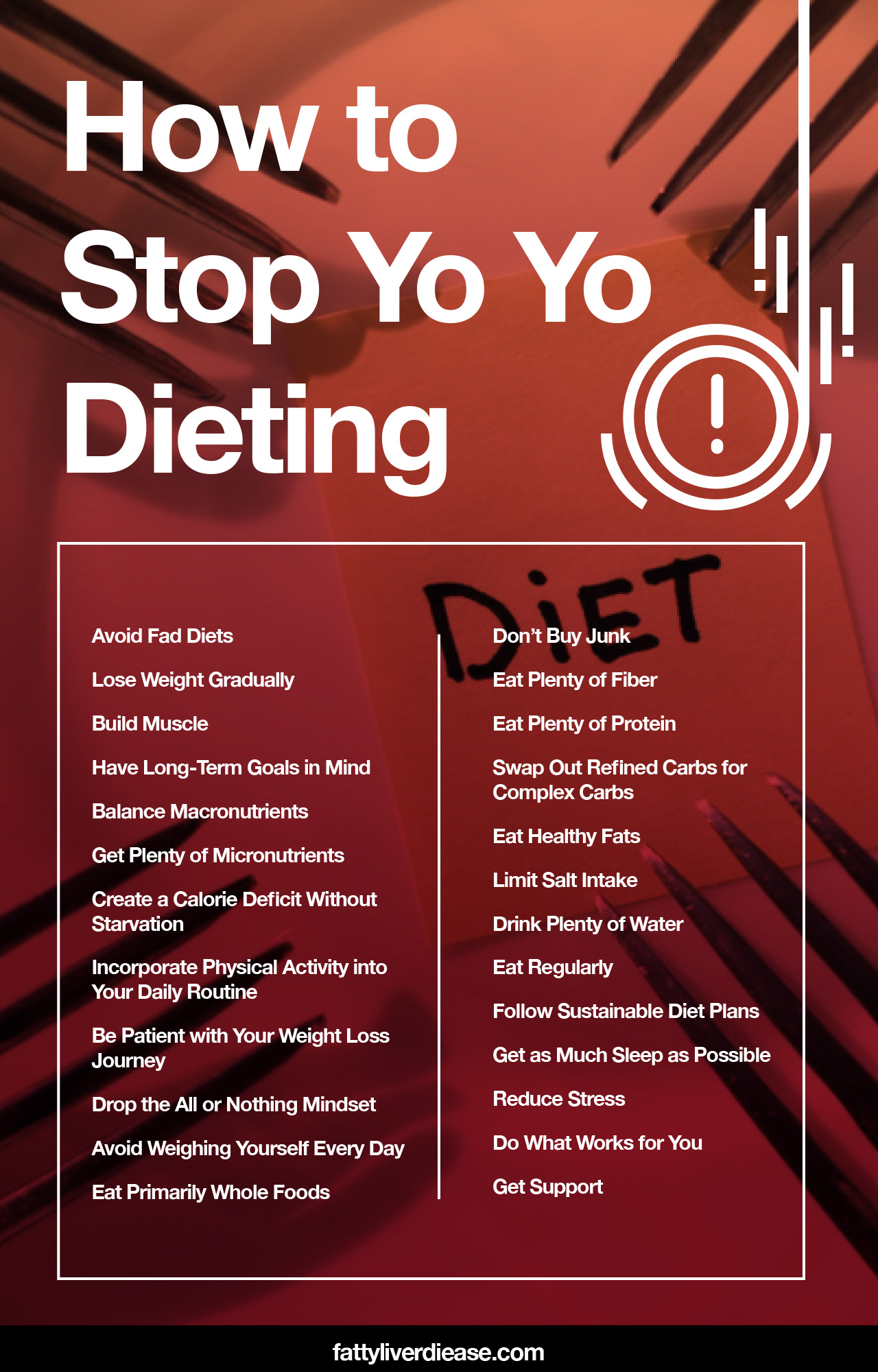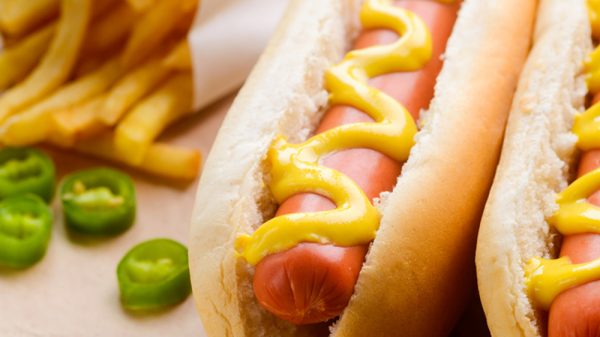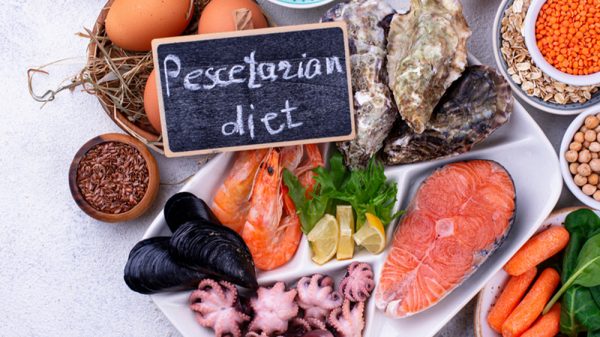Weight loss is critical for managing many conditions such as metabolic syndrome and fatty liver disease. It can be so frustrating to lose 15 pounds and feel great, only to then have the weight pile back on again. Yo yo dieting – often called weight cycling – is a common pattern, with dieters getting caught in a vicious cycle of eating too little and eating too much. This oscillating pattern is not sustainable, and ultimately does more harm than good.
If you are a yo yo dieter, know that you are not alone! If you’re ready to lose the excess weight for good, keep reading for a complete guide on how to lose weight and keep it off.
Importance of Maintaining a Healthy Weight
Before we dive into how to stop yo yo dieting, let’s first look at why it’s so important to maintain a healthy body weight. A healthy weight is defined by many factors, including your height and body structure. As a result, the body mass index (BMI) is a system that defines healthy weight within a range depending on your height.
It’s also important to keep in mind that beyond weight, body composition also plays a role in your health. Muscle mass and body fat percentage influence your metabolism and risk for diseases.
Being overweight or obese is one of the primary risk factors for developing many non-communicable diseases, including type 2 diabetes, heart disease, and fatty liver disease. Excess fat isn’t only visible on the outside of the body, it also embeds itself in the organs. Fatty liver disease occurs when fat builds up in the liver and causes inflammation. Being overweight also increases the risk of high cholesterol and blood lipids, which in turn increases the risk of having a heart attack or stroke.
Just as being overweight is a health hazard, not having enough body weight can be dangerous as well. Being significantly underweight puts you at a greater risk for muscle wasting, heart issues, and low energy levels.
How to Stop Yo Yo Dieting
Here we equip you with 25 tips for how to step off of the yoyo diet roller-coaster and achieve sustainable weight loss.
1. Avoid Fad Diets
Fad diets are a trap for yo yo dieting. Juice cleanses, super low-calorie diets, and other restrictive fad diets are designed to help you lose a lot of weight very quickly. Because we are human, we gravitate towards things that will give us fast results. However, these crash diets usually cause automatic weight to regain, simply because drinking only juice or eating a tiny number of calories simply is not sustainable. Being extremely restrictive with foods you eat or the number of calories you eat is risky, and though it might yield results you want in the short term, it can result in the development of an eating disorder in the long term.
2. Lose Weight Gradually
Gradual weight loss means that you are living a sustainable lifestyle that will help you reach a healthy weight. A good rule of thumb is to lose about 1 pound per week. However, depending on your starting weight, it might make sense to lose more or less each week.
Just be careful not to lose weight too quickly. Losing weight too rapidly can increase the risk of developing gallstones or losing lean muscle tissue.
3. Build Muscle
Increasing the amount of lean muscle tissue that you have will help you stop yo yo dieting by boosting your metabolism. Having an adequate amount of muscle tissue increases your strength and increases your resting metabolic rate. Muscle tissue is made up of protein and requires the constant turnover of amino acids to maintain it. The body must utilize more energy to support muscle tissue, which naturally increases your metabolism.
How can you build muscle? When you think of building muscle, you might have images of Arnold Schwarzenegger come to mind. However, you don’t need to be a bodybuilder to increase your muscle mass. All you need to do is engage in consistent physical activity to increase your muscle mass. Even regular walking increases your strength and supports cardiovascular health. If you want to build more muscle, focus on resistance training, which can entail bodyweight exercises or weight lifting.
4. Have Long-Term Goals in Mind
It’s normal to want to look good in a bathing suit for the upcoming summer season, or to fit into a dress for a special occasion. Though short-term goals can be great motivators, focus on long-term goals that keep you focused on a lifestyle shift. Short-term goals such as special occasions can lead to fast progress, but after the event is over, you may also feel like your weight loss journey is over, leading to binge eating and poor food choices.
To help you shift your focus to long-term goals, write down long-term goals that are connected to your quality of life instead of finite events and aesthetic features. A few good examples of long-term goals include:
- Being able to play outside with your kids without feeling winded
- Being able to comfortably run a mile
- Having more energy on a daily basis
- Reversing or preventing the progression of conditions like high blood pressure and fatty liver disease
- Improving cholesterol levels
- Sleeping better
- Improving digestion
- Feeling clear-headed
- Having better endurance
5. Balance Macronutrients
Macronutrients are the larger components of food that provide building blocks for all biological processes as well as energy in the form of calories. The three macronutrients that the human body requires for optimal health are protein, carbohydrates, and fat. To support optimal health and weight loss, it’s important to get a balance of these macronutrients each day. Overly restricting any of these macronutrients can lead to symptoms like low energy levels and slow muscle growth.
Some individuals find that counting macros is a helpful tool for weight loss. Whichever way you choose to incorporate macronutrients into your diet, it’s important to make sure you get a balance of all three.
6. Get Plenty of Micronutrients
What are micronutrients? Micronutrients are the smallest components of food that do not offer calories, but instead provide compounds that facilitate the smooth operation of all processes in the body, including efficient metabolic functions. Micronutrients include vitamins, minerals, and antioxidants.
The role of vitamins and minerals in the human body might be a little more clear. For example, vitamin C supports immune system function while calcium supports strong bones. But what do antioxidants do, and how do they support weight loss? Antioxidants are compounds that help cells repair and get rid of damaging waste particles called free radicals or reactive oxygen species. The damage inflicted on cells by these free radicals is called oxidative stress, which increases systemic inflammation.
Increased levels of oxidative stress and inflammation in the body are correlated with numerous disease mechanisms, including type 2 diabetes, fatty liver disease, heart disease, and other conditions related to metabolic function. Carrying excess weight throughout the body is even associated with inflammation and oxidative stress. Including more antioxidants in your diet may help improve metabolic function. When your metabolism functions more effectively, you will lose weight more effectively.
You can get lots of micronutrients from plant-based foods like fruits, veggies, nuts, seeds, and whole grains. Excellent examples of foods packed with micronutrients include kale, spinach, cauliflower, beets, sweet potato, brown rice, quinoa, blueberries, blackberries, and cherries.
7. Create a Calorie Deficit Without Starvation
A calorie deficit is required for weight loss. Being in a calorie deficit means that you are expending more calories than you are consuming. Many people who are trying to lose weight tend to create dramatic calorie deficits by eating insufficient amounts of food, in order to lose weight faster. However, it’s important to create a calorie deficit without starving. Chronically undereating leads to binge eating and an increased risk of yo yo dieting.
A moderate calorie deficit is all you need to steadily lose weight without experiencing a feeling of starvation or intense cravings.
8. Incorporate Physical Activity into Your Daily Routine
Incorporating physical activity into your lifestyle is an excellent way to burn more calories without forcing yourself to severely restrict calories. If you are new to physical activity, ramp up your exercise gradually. For example, start by walking around your neighborhood or on the treadmill for 20 minutes each day. As you build up your fitness, increase your walking time or intensity.
9. Be Patient with Your Weight Loss Journey
It’s natural to want a quick-fix diet for losing weight, but try to instead view the bigger picture of your journey. Your weight will naturally fluctuate throughout the course of your weight loss, and that’s ok! Weight loss is influenced by a multitude of factors including salt intake, stress, and hormone levels.
It’s also important to acknowledge that slip-ups are part of the journey, and the key to success is not avoiding mistakes altogether, but rather handing slip-ups in a way that doesn’t jeopardize your progress. A common sentiment after binge eating or making unhealthy choices for a meal is, “I’ve already messed up, so there’s no point in trying anymore.” However, if you find yourself reverting to your old eating habits during one meal, aim to make better choices during the next meal. You might be surprised to see how much progress you can make by simply sticking to your goals despite a few slip-ups!
10. Drop the All or Nothing Mindset
So many of us are prone to operating at extreme ends of the spectrum when it comes to dieting. People who are prone to yo-yo dieting tend to have an “all-or-nothing“ mindset. The all-or-nothing mindset is basically lacking any sense of balance. For example, an individual will often dive into an extreme workout and weight loss plan that doesn’t take into account the realities of life. Have you ever started a workout and weight loss regimen that required two hours of working out every day and eating very few calories? How long did this weight loss plan last? Probably not very long.
Although you might’ve seen results for the time you were able to sustain such a lifestyle, the results and lifestyle are simply not sustainable. By operating in extreme conditions, you essentially burn yourself out and give up. Your mind then begins to connect weight loss with a lifestyle that is impossible to sustain. You then believe that achieving a healthy weight is impossible since it requires such extreme measures. This can make permanent weight loss unattainable, and as you return to old eating patterns, the weight creeps back and your yo yo dieting cycle continues.
Does this sound like a familiar thought pattern? The issue in this pattern is not that permanent weight loss is unattainable, but rather that your mindset is getting in the way of your success.
Keep in mind that mindset changes don’t occur overnight and require diligent hard work to reframe your perspective. Instead of diving into a regimen head first, try making small changes that you can stick to. For example, instead of starting to work out 2 hours a day, start by just walking for 20 minutes each day and lifting light weights once per week. Instead of forbidding yourself from eating sweets, allow yourself the occasional treat. These choices are supporting long-term lifestyle changes while also promoting health and weight loss.
11. Avoid Weighing Yourself Every Day
Weighing yourself every day can be a psychological holdup for individuals trying to lose weight. Stepping on the scale every day can become an obsession and it can be frustrating when every weigh-in doesn’t yield a weight loss. However, it’s important to keep in mind that your weight will fluctuate on a daily basis, as mentioned above.
Plus, muscle is denser than fat tissue. If you have been working out and doing strength training, then you may notice a slimmer physique, even if the number on the scale is higher than before.
12. Eat Primarily Whole Foods
Healthy eating habits aren’t simply about how much food you’re eating but also the kind of food you’re eating.
A good guideline to follow is the 80/20 rule. The 80/20 rule encourages balance while also supporting a healthy, clean diet. At least 80% of your diet should be made up of whole foods, such as fruits, veggies, whole grains, leans meats, etc. Excellent examples of whole foods in these food groups include bananas, apples, blueberries cherries, kale, sweet potato, broccoli, Brussels sprouts, cauliflower, quinoa, brown rice, and chicken breast.
The remaining 20% of your diet can be reserved for processed foods like whole-grain bread, whole-grain pasta, low-sugar granola bars, and high-fiber cereal. The occasional treat should also be included in this 20% such as your favorite chocolate chip cookie bag of your favorite chips, or French fries. Following this method promotes balance and doesn’t forbid entire food groups. As with crash diets, forbidding certain foods leads to feelings of deprivation, which in turn causes strong cravings and overeating.
13. Don’t Buy Junk
If junk food isn’t in your refrigerator or pantry, it is much more difficult to make unhealthy choices or binge on foods like cookies and ice cream. When at the grocery store, stick to the foods that line the perimeter of the grocery store. Skip the middle aisles, which tend to be filled with chocolate, cookies, cakes, frozen pizzas, chips, and all of the unhealthy foods that we crave.
Save treats and unhealthy foods for when you’re at a friend’s house, at an event, at a restaurant, or on vacation.
14. Eat Plenty of Fiber
Eating lots of fiber on a daily basis will help facilitate your weight loss journey by helping you feel fuller, faster. Where can you get fiber? You can get fiber from eating lots of plant-based foods, like fruits, vegetables, whole grains, nuts, seeds, and beans. When you eat an abundance of these foods, your stomach fills up more quickly, which notifies receptors in your stomach that send messages to your brain that you are feeling full.
Fiber-rich foods also have the benefit of being lower in calories and higher in nutrients than high-sugar, high-fat foods. As a result, you will feel more full more quickly, while also consuming fewer calories. It’s a win-win situation!
15. Eat Plenty of Protein
Protein is a critical macronutrient that supports every biological process in the body. The individual components of protein are called amino acids. When we consume dietary protein, the digestive system breaks it down into individual amino acids, which are then sent throughout the body to be used in a variety of biological mechanisms. Amino acids are crucial for supporting muscle synthesis as well as the production of hormones, connective tissue, neurotransmitters, and enzymes. Without getting the amino acids we need, human metabolism does not operate as effectively.
The human body specifically requires essential amino acids from dietary protein sources. The essential amino acids include leucine, isoleucine, lysine, valine, tryptophan, phenylalanine, histidine, methionine, and threonine. We require optimal ratios of these essential amino acids on a daily basis because the body is unable to synthesis the essential amino acids endogenously. On the other hand, the body is able to synthesize the nonessential amino acids, making it unnecessary to get these amino acids through food each day.
To support muscle synthesis and metabolic function, make sure you’re getting high-quality protein on a daily basis. Animal-based products provide optimal ratios of essential amino acids in a single source, such as eggs, yogurt, milk, cheese, chicken breast, and fish. Optimal ratios of essential amino acids can still be obtained if you follow a vegan or plant-based diet, though no single vegetable protein offers balanced ratios. Instead, it’s important to make sure that you consume a variety of plant proteins on a daily basis, such as beans, nuts, seeds, and whole grains.
In addition to providing essential amino acids, protein also helps keep you full. Protein helps slow down digestion and provides a steady source of fuel. Eating protein can help curb your hunger and keep you feeling fuller for longer.
16. Swap Out Refined Carbs for Complex Carbs
Refined carbohydrates are often a staple food in the standard American diet, so many of us don’t even realize that they are unhealthy and may be contributing to weight gain. In fact, you may be eating an otherwise healthy diet, but the refined grain that you are consuming actually sabotages your weight loss goals.
Why are refined carbohydrates so bad? Refined carbohydrates are whole grains that have been heavily processed to remove the most nutritious part of the grain, which is filled with protein, antioxidants, and fiber. The remaining product is a white starchy part of the grain that becomes what we know of as white bread, white rice, white flour, and white pasta. When we eat these refined grains, the body rapidly breaks down the simple starch into sugar, which then enters the bloodstream and spikes blood sugar. Eating too many refined grains is associated with the development of different metabolic conditions such as fatty liver disease, insulin resistance, type 2 diabetes, and even high blood pressure.
If you love carb-heavy foods like pasta, bread, and rice, you may find it challenging to cut out these foods all together during your weight loss journey. Instead of taking these foods out of your diet, try swapping refined carbohydrates for complex carbohydrates that have been minimally processed or not processed at all. Unprocessed grains are called whole grains and are rich in nutrients that support health and weight loss such as amino acids, fiber, vitamins, and antioxidants. When at the grocery store, look for items like quinoa, brown rice, millet, oats, and whole-grain pasta. Sweet potatoes are another nutrient-dense food that can satisfy cravings for carbs without spiking your blood sugar.
At first, you may find it difficult to adjust to the taste of whole grains. Whole grains tend to be tougher in texture with a nutty flavor. When transitioning to eating primarily whole grains, you can try mixing whole grains with refined grains, such as boiling a box of white pasta as well as a box of whole-grain pasta. As you get used to the flavor and texture of whole grains, you can transition to primarily eating whole grains.
17. Eat Healthy Fats
Contrary to common belief, not all fats are bad! In fact, many fats are extremely healthy and not only promote weight loss but also help lower systemic inflammation and support optimal metabolic function.
So, what kinds of fats are good fats? To incorporate healthy fats into your diet, eat plenty of polyunsaturated and monounsaturated fat. In particular, polyunsaturated fats like omega-3 fatty acids or potent anti-inflammatory agents. Omega-3 fatty acids are present in both animal sources as well as plant-based sources.
EPA and DHA are two forms of healthy omega-3 fatty acids that can be found in fatty fish, such as mackerel, salmon, sardines, and anchovies. EPA and DHA are two forms of healthy omega-3 fatty acids that can be found in fatty fish, such as mackerel, salmon, sardines, and anchovies. Omega-3 fatty acids are also present in the form of ALA. you can get ALA from foods such as flaxseed, chia seeds, pecans, and walnuts.
14. Limit Salt Intake
A certain amount of salt is required on a daily basis to support healthy biological functioning, such as regulating heartbeats, electrical firing in the brain, and the passage of compounds through the cellular membrane.
However, eating too much salt over a long period can cause water retention, high blood pressure, and kidney issues. Salt is prevalent in the American diet due to traditionally high consumption of processed meat, cheese, and pre-made and packaged foods. Limiting your salt intake can also help keep weight fluctuations to a minimum.
18. Drink Plenty of Water
Staying hydrated is vitally important to help you stop yo yo dieting and to reach a healthy, sustainable weight. Not drinking enough water can lead to fatigue and brain fog, which also happen to be symptoms of hunger. When we mistake thirst for hunger, food doesn’t fix the symptoms, and it is easy to then overeat in an effort to compensate.
Staying hydrated helps us feel energized so that when we feel hungry, we know that we are actually hungry. Make a habit of carrying around a large water bottle throughout the day as a constant reminder to drink water. Drink a tall glass of water before every meal, to make sure that you are eating the amount of food that your body needs, instead of eating to compensate for both hunger and thirst.
19. Eat Regularly
Some people try to lose weight by skipping meals or putting off eating for many hours during the day. Unless you are following a carefully planned intermittent fasting protocol, it’s better to eat regularly and stay on top of hunger. Skipping meals and not eating for prolonged periods of time can lead to a drop in blood sugar levels, weakness, and feeling famished. These feelings increase the likelihood of overeating during your next meal.
Instead, aim to eat at least every 4 hours. Eating regularly also helps keep your metabolism going, so you can efficiently turn food into energy.
20. Follow Sustainable Diet Plans
For many people, following a diet plan helps them to initially transition to eating healthier foods. In other words, following a balanced Mediterranean diet or paleo diet offers a blueprint for foods to eat and foods to avoid when you’re trying to live a healthy lifestyle and lose excess weight.
21. Get as Much Sleep as Possible
Can sleep really help with weight loss? It can! Sleep is crucial for weight loss and for your overall health. When we are sleeping, the body is hard at work repairing damaged cells and helping us heal from stress, illness, and injury. Sleep deprivation worsens stress and anxiety levels, which in turn increases the amount of oxidative stress and inflammation in the body.
When levels of oxidative stress and inflammation increase, you will have higher levels of the stress hormone cortisol in your bloodstream. Chronically high levels of cortisol negatively impact metabolic function by increasing body fat and blood sugar levels.
Plus, have you ever noticed that you feel ravenous whenever you’re sleep deprived? This is the body’s way of trying to make up for low energy levels. If the body can’t get rejuvenated through sleep, it will ask for food to keep its engine running!
Finally, sleep is critical for helping your body repair after workouts. Building muscle relies on getting an adequate amount of rest and sleep so that the body can repair damaged muscle tissue.
You increase the amount of quality sleep that you get by trying to maintain a regular bedtime and wake-up time. Getting in a routine will help your body naturally prepare for sleep.
22. Reduce Stress
Your mental health is closely related to your physical health. Implementing stress management techniques in your daily life can help you maintain a healthy mindset and lose weight. The impact of stress reduction techniques on yo-yo dieting is twofold.
First, regularly engaging and stress management techniques can help you reduce your levels of chronic stress due to work, childcare responsibilities, etc. When you reduce your levels of chronic stress, you impact your body on a molecular level. Lower levels of stress are correlated with lower levels of inflammation and oxidative stress, which therefore helps your metabolism function as efficiently as possible. A healthier metabolism means an easier time losing weight.
Consistently managing your stress can also help recenter and balance your mindset. Many stress reduction techniques are focused on appreciating and engaging in the present moment. When your mind is more engaged in the present moment and you’re feeling more content, you are less likely to engage in extreme behaviors such as drastically cutting calories or over-exercising. Essentially managing your stress and remaining as relaxed as possible helps support a balanced and healthy lifestyle that leads to sustainable weight loss.
23. Do What Works for You
If you’re trying to lose weight, keep in mind that no plan is “one size fits all.” Each individual has a unique genetic profile that impacts biochemistry and metabolism. You may find that you feel more sluggish after a high-carb meal and thrive on lower-carb meals, while others may feel energized after high-carb meals. You might feel your best when eating dairy as your primary protein source, while others prefer meat. Some individuals may feel best getting up early to exercise, while others feel like they benefit from a little more sleep and meditation in the mornings.
The only universal rule is that whole, plant-based foods are healthy in any diet. Otherwise, the bottom line is that each individual will feel their best when a diet and lifestyle plan is tailored to their specific needs.
24. Get Support
Pursuing a weight loss journey and shifting your lifestyle can be very challenging and hard to sustain when you have numerous other responsibilities, such as work, school, children, or caring for family members. To make the process more enjoyable and to help keep you accountable, do the journey with a friend or family member! Maybe you and your partner want to change your lifestyle and eating habits together, or you and your friend want to increase your physical activity levels.
Alternatively, try joining a support group either online or in your area. Joining a group can provide you with opportunities to connect with others who are striving to make life-long diet and lifestyle changes.
Things to Keep in Mind
If you continue to struggle with the yo-yo cycle and are concerned about weight changes, it’s a good idea to check in with your doctor and a registered dietitian. Getting support can help you make sure that the foods you are eating are healthy for your specific conditions and biochemistry.
Conclusion: How to Stop Yo-Yo Dieting
If you are prone to fluctuating body weight as a result of yo yo dieting, making sustainable lifestyle changes is the key to avoiding weight cycling. Eating healthy foods that provide high-quality protein, complex carbs, and healthy fats is crucial for supporting a healthy weight. However, stopping yo yo dieting is not just about the kind of foods you eat, how much food you eat, and the amount of exercise you do. In order to put an end to the vicious cycle of weight gain and loss, it’s critical to also make some mindset changes. Letting go of extreme dieting, living in balance, and reducing stress will help you lose weight and keep it off for good, while also supporting overall health and well-being.
























